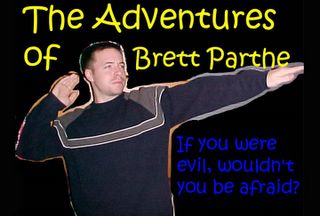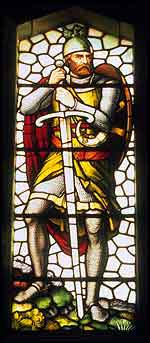Some thoughts on ‘Salem’s Lot, with heavy use of quotes:
(So far I haven't had any comments on any of my Stephen King posts. Maybe this long post will fare better)
Father Callahan is one of the more interesting characters in the novel, casting a large shadow despite relatively minor page representation. He is a man with a drinking problem, a man having a crisis of faith, unaware of his own identity in the Church and in the World. He is a small town priest, once ready for great Challenge, now bogged down in relentless “small” evil.
----It was the actual presence of evil in the confessional, moronic evil from which there was no mercy or reprieve. The fist crashing into a baby’s face, the tire cut open with a jackknife, the barroom brawl, the insertion of razor blades into Halloween apples, the constant, vapid qualifiers which the human mind, in all its labyrinthine twists and turns, is able to spew forth. Gentlemen, better prisons will cure this. Better cops. Better social services agencies. Better birth control. Better sterilization techniques. Better abortions. Gentlemen, if we rip this fetus from the womb in a bloody tangle of unformed arms and legs, it will never grow up to beat an old lady to death with a hammer. Ladies, if we strap this man into a specially wired chair and fry him like a pork chop in a microwave oven, he will never have an opportunity to torture any more boys to death. Countrymen, if this eugenics bill is passed, I can guarantee you that never again—
Shit.
‘Salem’s Lot, p. 231----
It’s not hard to see that ‘Salem’s Lot is much more about these evils than any sort of Ultimate Evil, which comes to the town in the form of an ancient vampire. The vampire isn’t left with much to scare us with. We are frightening enough on our own. Dorothy Sayers deals with this in her wonderful book, Creed or Chaos?, in the context of the problem of evil.
----“Why doesn’t God smite this dictator dead?” is a question a little remote from us. Why, madam, did He not strike you dumb and imbecile before you uttered that baseless and unkind slander the day before yesterday? Or me, before I behaved with such cruel lack of consideration to that well-meaning friend? And why, sir, did He not cause your hand to rot off at the wrist before you signed your name to that dirty little bit of financial trickery?
You did not quite mean that? But why not? Your misdeeds and mine are nonetheless repellent because our opportunities for doing damage are less spectacular than those of some other people. Do you suggest that your doings and mine are too trivial for God to bother about? That cuts both ways; for, in that case, it would make precious little difference to His creation if He wiped us both out tomorrow.
Creed or Chaos?, pp. 12-13----
The town constable, a sympathetic character, disgusted and weary, weary most of all, ends up leaving the town rather than stay and fight a vampire for the soul of a town that has long been dead.
----“It ain’t alive,” Parkins said, lighting his smoke with a wooden kitchen match. “That’s why he came here. It’s dead, like him. Has been for twenty years or more. Whole country’s goin’ the same way. Me and Nolly went to a drive-in show up in Falmouth a couple of weeks ago, just before they closed her down for the season. I seen more blood and killin’s in that first Western than I seen both years in Korea. Kids was eatin’ popcorn and cheerin’ ‘em on.” He gestured vaguely at the town, now lying unnaturally gilded in the broken rays of the westering sun, like a dream village. “They prob’ly like bein’ vampires. But not me; Nolly’d be in after me tonight. I’m goin’.”
‘Salem’s Lot, p. 593----
But the reason our heroes do stay, even though what Parkins says seems so true, is voiced by the young Mark Petrie, “Because he’s bad, mister. He’s really bad. That’s all.” (p. 594)
The forces of light have the responsibility of slaying the dragon that God has sent to them, regardless of whether or not the village is worth saving, regardless of whether or not it means their certain death.
Back to Father Callahan.
The whole of ‘Salem’s Lot seems to suggest that the Roman Catholic Church is the true Church, the only agent with the powers to defeat this evil vampire. The crucifix terrifies the vampires, holy water and the Host easily destroys them. These holy weapons are unavailable in the local Methodist or Congregational Churches. It is the Catholic Church that keeps and guards these weapons.
Anyhow, Father Callahan is recruited, not only as himself, “But if I go with the Host… then I go as an agent of the Holy Catholic Church, prepared to execute what I would consider the most spiritual rites of my office. Then I go as Christ’s representative on earth.”
The problem becomes, that even though Callahan believes in the power and the mission of the Church, he has no real faith in Christ.
This is where the protestant vampire comes in.
Callahan and Mark Petrie have been isolated from the rest of the heroes at Mark Petrie’s house. Barlow, the ancient and Evil Vampire has come to kill Petrie’s parents and finds himself in a showdown with Callahan and Petrie. Barlow snatches up Petrie and threatens him, while Callahan, armed with the Host, holy water, and more specifically at the moment, Crucifix extended toward Barlow, threatens Barlow back. The two must barter. Barlow agrees that he will let Petrie go if Callahan sets down his Crucifix, “throw away your cross and face me on even terms— black against white? Your faith against my own?” (p. 523). Callahan accepts the terms. Barlow lets Petrie go, and Petrie runs off at Callahan’s command. The problem is that Callahan cannot set aside his crucifix, even when he has agreed to do so. He continues to extend it against Barlow, yet now Barlow begins to approach him, now seemingly unaffected. Why? Callahan has shown that his faith is entrusted in the crucifix he holds, a physical object, not in the God of the Crucifix, that bestows all might.
---- And the next sound would haunt him for the rest of his life: two dry snaps as Barlow broke the arms of the cross, and a meaningless thump as he threw it to the floor.
“God damn you!” he cried out.
“It’s too late for such melodrama,” Barlow said from the darkness. His voice was almost sorrowful. “There is no need of it. You have forgotten the doctrine of your own church, is it not so? The cross… the bread and wine… the confessional… only symbols. Without faith, the cross is only wood, the bread baked wheat, the wine sour grapes. If you had cast the cross away, you should have beaten me another night. In a way, I hoped it might be so. It has been long since I have met an opponent of any real worth. The boy makes ten of you, false priest.”
‘Salem’s Lot, p. 526----
And so, the protestant vampire wins over Father Callahan. I won’t let you know what happens to Callahan, but he is broken after this, unclean, yet somehow redeemed.
This section of the book is one of the most interesting to me. It seems like King’s protestant (Methodist) upbringing shines through. A Roman Catholic would not have, could not have, written that section in the same way. The Host (the bread) IS Jesus, regardless of the faith of the individual.
This part of the book has stuck with me, more than any other part, but it does have its own problems, casting doubt on some of the previous usage of holy items by unbelieving characters earlier in the book.
I’ve said all of this without once mentioning the name Ben Mears, ‘Salem’s Lot’s protagonist.
But I’ve said all that I have to say for now.



